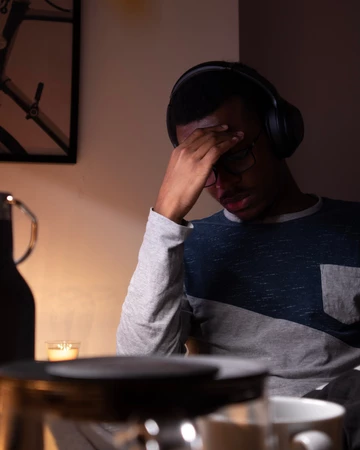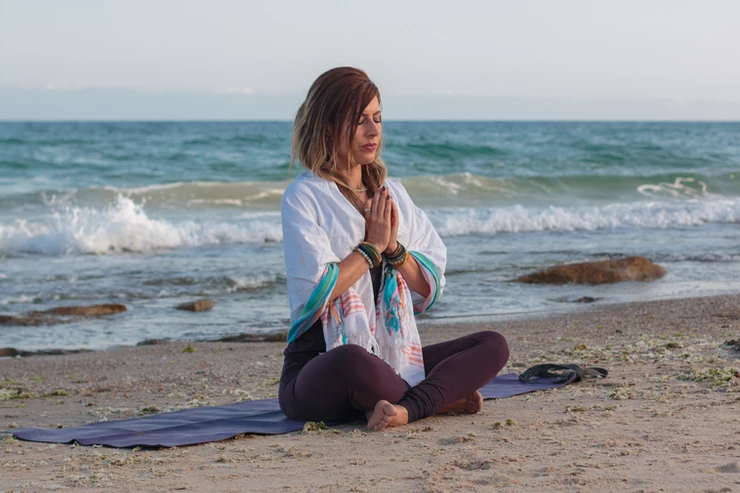With the world rapidly changing, and so many difficulties arising from the current Global Pandemic, it is easy to feel overwhelmed, anxious or worried about the future. Here are three simple strategies to lessen the burden of current world events
1. Take time to connect with your inner self
This may seem like cryptic statement, but in reality it couldn’t be simpler.

Most of us spend far more time looking at our mobile phones, laptops, work computers or television screens than we spend having meaningful face-to-face conversations with our loved ones.
Even more prevalent is the fact that many of us don’t spend any time on ourselves, taking time out to enjoy the simple things in life, like taking a hot bath with a nice glass of wine, having a long stroll out in nature, or spending a sunny afternoon on the beach watching waves roll in.
No doubt the first thought that comes to mind when I say this is that you don’t have time to spend on yourself, perhaps you’re a busy parent, work 50-60 hours per week, and have many other many other responsibilities to take care of.
This may very well be true, however if you have taken the time out to enjoy a little bit personal time, your mind may be less distracted, and other commitments like working or looking after the family may become more productive, freeing up more time me for yourself.

I also believe if you take a step back and look at your current situation objectively, you probably spend a lot of wasted time scrolling social media posts, searching aimlessly on Google Pages, or staring at the television, rather than using that time to find ways to relax and unwind.
The constant information overload we experience on a daily basis can lead to stress, anxiety, worry and even depression, especially now given the current pandemic situation.
Stress can build up over time, and cause you to feel more anxious or insecure about the future.
The first helpful tip I have is to take 10 to 20 minutes every single day to unplug from the world, turn off your phone, switch off the television and find a quiet place to sit, relax and breathe.
I find sitting outside in a sunny location close to nature is one of the most peaceful experiences possible, however if this option isn’t available to you, perhaps you can light some incense, put on gentle and soothing meditation music, and sit in a comfortable chair instead.
Try closing your eyes, taking in the ambient sounds around you, and concentrate on nothing but breathing deeply in and out.
After only a minute or two you’ll notice that your heart rate will begin to slow, your thoughts will become less erratic, and you will start to feel more relaxed.

2. Try to ground yourself in the present.
We often get worried or anxious when we are too focused on what is going to happen in the future, rather than on what we can do right now to alleviate these feelings of concern. Try asking yourself: What is happening to me right now? Am I in a safe place? Is there something I need to do immediately?

By bringing your focus to the now, rather than some distant time or place, you can begin to slow your breathing and lower your heart rate. I believe it helps to try to wake up each morning and make a quick list of the most pressing things you need to achieve that day.
Try not to take on too many things at once, and ensure that you pencil in some time where you can do your favourite activity, like listening to music, going for a walk or run, painting a picture etc.
Sometimes we put unnecessary stress on ourselves by trying to do too much. Try to keep your list to only the ESSENTIAL things that need to be completed, and once your list is written, ask yourself if everything on the list is really important.
If not, cross a few items off the list, and put in somewhere prominent like the fridge, where you can revisit it throughout the day.
By crossing off each item as you go, you can celebrate what you are accomplishing, and take pride in everything you have succeeded in doing that day.
When you get to the end of the day, take any task you haven’t completed and put them at the top of the list for the following day, and remember, not completing everything you set out to doesn’t mean you are a failure, it just means your expectations were too high for the time you had available.
3. Fact Check your thought process.
People with anxiety often fixate on worst-case scenarios. To combat these concerns, think about how realistic they are. Take for example that your boss has asked you to do a big presentation at work. Rather than becoming nervous and thinking, “I’m going to make a mess of it,” try instead to remind yourself, “I am nervous, but I’m prepared. Some things will go well, and some may not”. Getting into a pattern of rethinking your fears helps train your brain to come up with a rational way to deal with your anxious thoughts.
Positivity will come from a shift in mindset, and constant little steps in the right direction are far easier than focusing on a long distant goal that may seem unreachable when you first start out.
Anxiety is a difficult condition that affects many of us, especially with the uncertain events surrounding us with the Global Pandemic. Whilst eliminating anxiety altogether may not be possible, reducing its severity, and taking little steps to improve your quality of life, will make a big impact in your life.
Don’t forget friends and family are great to talk to whenever you are feeling thoughts of anxiety, worry or depression; it is definitely okay to say that you are not feeling okay.
I hope this blog has been of some help for you, keep checking in with us to find some more great health and lifestyle tips from our wonderful community.
#mentalhealth #5pillarsofwellbeing #anxiety #stressreduction #wuxingdao


